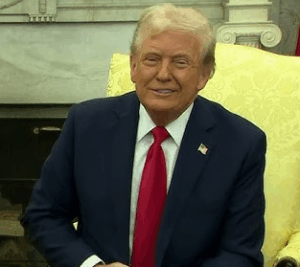India is grappling with trade tensions as surging Chinese imports of viscose yarn, bolstered by a weakened competitive stance, threaten local manufacturers and the textile sector.
India Faces Trade Challenges as Chinese Imports Surge Amid Tensions with the US

India Faces Trade Challenges as Chinese Imports Surge Amid Tensions with the US
Concerns Rise Over Chinese 'Dumping' Practices Threatening India's Textile Industry
In southern India’s Tamil Nadu, Thirunavkarsu's spinning mill, a 64-year-old business, is feeling the pinch of a slowing market. Sales of viscose yarn, crucial for woven garments, have plummeted approximately 40% in the last month as cheaper Chinese imports flood the market, depreciating by 15 rupees ($0.18; £0.13) per kilo. This downturn comes as China seeks alternative markets due to the US imposing hefty tariffs of up to 145% on Chinese goods under Trump’s administration.
Local textile manufacturers are voicing concerns about the implications of such imports, alleging that Chinese producers are unethically dumping yarn within India. Despite India being capable of producing most required viscose yarn domestically, the competition presented by imported materials has left mill owners fearing for their businesses.
Jagadesh Chandran from the South India Spinners Association highlights the struggles facing nearly 50 mills across key textile hubs, which are struggling to sustain production. "We can't match these rates. Our raw material is not as cheap," he explained.
While China’s Ambassador to India, Xu Feihong, assured that the country would avoid market dumping, fears sweep across various sectors of India, as its trade deficit with China has ballooned to $100 billion (£75 billion). Research indicates that nearly 200 complaints against China for unfair trade practices were lodged in the past year, including 37 from India.
In an effort to counteract the influx of cheap foreign goods affecting local industries, India’s trade ministry has established a committee to monitor such commodities and recently imposed a safeguard duty of 12% on certain steel imports. However, despite a push for local manufacturing through government incentives, the reliance on Chinese components in manufacturing processes remains high, impacting trade balance negatively.
Experts suggest that India’s growing trade deficit points to a structural issue that undermines domestic growth and competitiveness. The influx of Chinese goods, particularly in electronics and textiles, raises concerns that without robust measures, Indian manufacturing could suffer even further in the upcoming years, reinforcing fears of being overshadowed by Chinese economic might.
As the situation develops, experts urge the Indian government to engage in dialogue with China regarding these dumping concerns, emphasizing that strong measures are necessary to protect local industries and ensure economic stability amidst the global trade shake-up.
Local textile manufacturers are voicing concerns about the implications of such imports, alleging that Chinese producers are unethically dumping yarn within India. Despite India being capable of producing most required viscose yarn domestically, the competition presented by imported materials has left mill owners fearing for their businesses.
Jagadesh Chandran from the South India Spinners Association highlights the struggles facing nearly 50 mills across key textile hubs, which are struggling to sustain production. "We can't match these rates. Our raw material is not as cheap," he explained.
While China’s Ambassador to India, Xu Feihong, assured that the country would avoid market dumping, fears sweep across various sectors of India, as its trade deficit with China has ballooned to $100 billion (£75 billion). Research indicates that nearly 200 complaints against China for unfair trade practices were lodged in the past year, including 37 from India.
In an effort to counteract the influx of cheap foreign goods affecting local industries, India’s trade ministry has established a committee to monitor such commodities and recently imposed a safeguard duty of 12% on certain steel imports. However, despite a push for local manufacturing through government incentives, the reliance on Chinese components in manufacturing processes remains high, impacting trade balance negatively.
Experts suggest that India’s growing trade deficit points to a structural issue that undermines domestic growth and competitiveness. The influx of Chinese goods, particularly in electronics and textiles, raises concerns that without robust measures, Indian manufacturing could suffer even further in the upcoming years, reinforcing fears of being overshadowed by Chinese economic might.
As the situation develops, experts urge the Indian government to engage in dialogue with China regarding these dumping concerns, emphasizing that strong measures are necessary to protect local industries and ensure economic stability amidst the global trade shake-up.






















